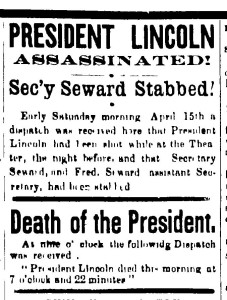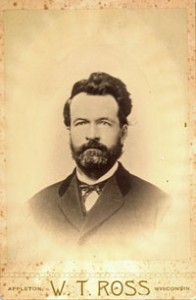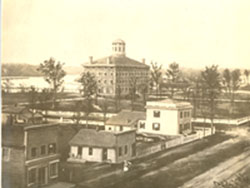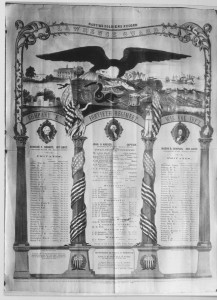
150 years ago yesterday, the city of Appleton held a memorial service in Main Hall for President Abraham Lincoln, who had been assassinated on April 15, 1865. The following text comes from the report in the Appleton Motor newspaper, published April 20, 1865:
On Wednesday morning…our citizens, in order to appropriately participate in observing the solemnities of the funeral of our late beloved Chief Magistrate, whose cowardly assassination appalls the senses…of every true American citizen, formed in procession on College Avenue, opposite Odd Fellows’ Hall, at half past ten o’clock, and marched to College Chapel where an Eulogy was pronounced by His Honor, R. Z. Mason, Mayor of the city.
The procession formed in three columns, preceded by a Band of Music and the American Flag draped in mourning, in the following order:
On the Left – Masons, German Society, …Odd Fellows
On the Right – Returned soldiers, Lawrence Engine Co., in uniform, Students
In the Center – Good Templars, Sanitary Commission, Christian Commission, Citizens
The Chapel and Gallery were filled to overflowing, and the assemblage listened with the utmost attention to a very appropriate and affecting Eulogy. It was voted that it be published in the city papers.
All places of business were closed, and the most of them draped in mourning. The Chapel was very neatly and profusely draped in the habiliments of woe.
Half hour guns were fired during the day, by City Marshal, E. H. Graves.
It was a time of universal sadness.


